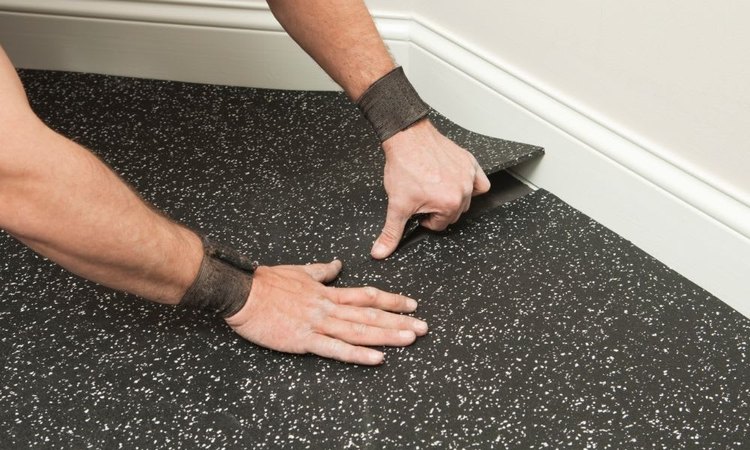Flooring Installation in the United Kingdom: An Overview
Flooring installation in the United Kingdom includes a wide range of materials, such as hardwood, laminate, and tile. This overview explores general information about the flooring industry, including typical skills used by professionals and common practices in installation. The content is intended for informational purposes only and does not represent job offers or training programs.

Flooring installation is a vital service across residential and commercial sectors in the United Kingdom, combining technical expertise with craftsmanship. From traditional hardwood and laminate to modern luxury vinyl tiles and eco-friendly options, the industry encompasses diverse materials and techniques that cater to varying client needs. Professional installation ensures longevity, proper functionality, and aesthetic appeal of flooring solutions throughout properties across the nation.
Understanding Flooring Installation Services in the United Kingdom
The flooring installation industry in the United Kingdom operates through various service models, including independent contractors, specialized flooring companies, and larger construction firms. Most professional installers offer comprehensive services beginning with initial consultation and measurement, followed by material selection guidance, subfloor preparation, installation, and finishing touches. The UK market distinguishes between residential and commercial installation services, with the latter often requiring specialized knowledge of high-traffic materials, safety regulations, and business-specific requirements.
Quality flooring installation in the UK adheres to British Standards, particularly BS 8203 for resilient floor coverings and BS 5325 for textile floor coverings. Professional installers typically hold certifications from organizations such as the Contract Flooring Association (CFA) or the National Institute of Carpet and Floorlayers (NICF), which establish industry benchmarks for installation quality. These standards ensure that installations meet safety requirements, durability expectations, and performance criteria specific to different flooring types.
Pathways to Becoming a Floor Installer and Industry Insights
The journey to becoming a qualified floor installer in the United Kingdom typically follows several established routes. Many professionals enter the field through apprenticeship programs, which combine practical on-site training with classroom instruction. These apprenticeships usually last 2-3 years and provide comprehensive exposure to different flooring materials and installation techniques. Alternatively, vocational colleges offer specialized courses in flooring installation that can be completed as standalone qualifications or as part of broader construction training.
Continuing professional development plays a crucial role in the flooring installation industry. As new materials and technologies emerge, installers must regularly update their skills through manufacturer training programs, industry workshops, and formal certification courses. The Flooring Industry Training Association (FITA) offers specialized courses for professionals looking to expand their expertise in specific areas such as luxury vinyl tile installation, wood flooring, or underfloor heating systems. Many successful installers also develop specializations in particular flooring types, allowing them to command premium rates for specialized knowledge.
Salary Expectations for Flooring Installation Professionals in the United Kingdom
Flooring installation professionals in the UK experience varying income levels based on factors including experience, specialization, location, and employment structure. Entry-level installers typically earn between £18,000 and £22,000 annually, while those with several years of experience can expect salaries ranging from £25,000 to £35,000. Highly specialized installers with extensive experience, particularly those working with premium materials like natural stone or bespoke wooden flooring, may command annual incomes exceeding £40,000.
Regional variations significantly impact earning potential in the flooring installation sector. Professionals based in London and the Southeast generally command higher rates than those in other regions, reflecting the higher cost of living and increased property values in these areas. Self-employed installers often earn more than those in permanent employment positions, though this comes with additional responsibilities including business management, client acquisition, and handling periods of fluctuating demand.
Current Market Trends in UK Flooring Installation
The UK flooring installation market has witnessed several notable trends in recent years. Sustainable flooring options have gained significant traction, with growing demand for environmentally friendly materials such as bamboo, cork, and reclaimed wood. Similarly, luxury vinyl tile (LVT) has emerged as a popular choice due to its durability, water resistance, and authentic appearance that mimics natural materials at a lower cost point.
Technological advancements have also transformed the industry, with innovations like click-lock installation systems making certain flooring types more accessible to DIY enthusiasts. However, complex installations still require professional expertise, particularly for specialized applications such as herringbone patterns, custom inlays, or installations involving underfloor heating systems. The COVID-19 pandemic accelerated home improvement projects, resulting in increased demand for residential flooring installation services across the UK.
Cost Considerations for Flooring Installation Projects
Flooring installation costs in the United Kingdom vary widely depending on material choice, project complexity, property location, and installer expertise. Understanding typical price ranges helps property owners budget effectively for their flooring projects.
| Flooring Type | Average Supply Cost (per m²) | Average Installation Cost (per m²) | Typical Total Cost (per m²) |
|---|---|---|---|
| Carpet | £8 - £40 | £3 - £10 | £11 - £50 |
| Laminate | £7 - £30 | £8 - £12 | £15 - £42 |
| Engineered Wood | £30 - £90 | £15 - £25 | £45 - £115 |
| Solid Hardwood | £35 - £120 | £20 - £30 | £55 - £150 |
| Luxury Vinyl Tile | £15 - £50 | £10 - £20 | £25 - £70 |
| Ceramic Tile | £20 - £60 | £30 - £50 | £50 - £110 |
Prices, rates, or cost estimates mentioned in this article are based on the latest available information but may change over time. Independent research is advised before making financial decisions.
Additional costs may include subfloor preparation, underlay materials, removal and disposal of existing flooring, and furniture moving services. Most professional installers offer free quotations that include a detailed breakdown of these costs. Urban areas, particularly London and major cities, typically command premium installation rates compared to rural locations.
Conclusion
Flooring installation in the United Kingdom represents a diverse and evolving industry that balances traditional craftsmanship with modern materials and techniques. Whether pursuing a career in the field or seeking installation services, understanding the industry landscape provides valuable context for making informed decisions. As sustainability concerns and technological innovations continue to shape the sector, both professionals and consumers can benefit from staying informed about emerging trends, quality standards, and economic considerations within this essential construction specialty.




